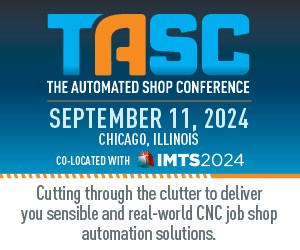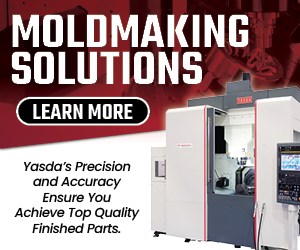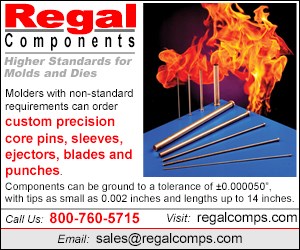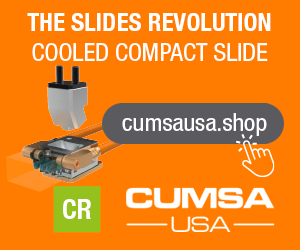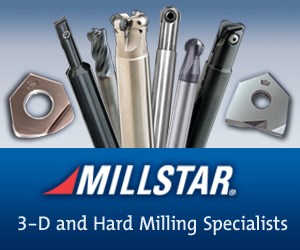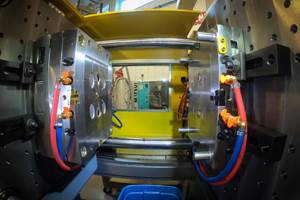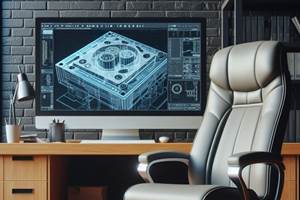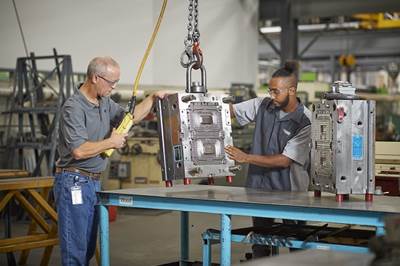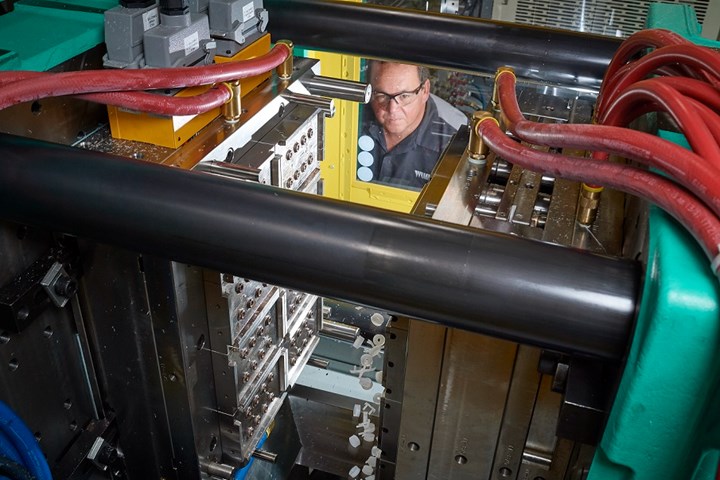
Investments in upfront engineering enable contract manufacturing partners to transfer the tools, not the challenges. All Photo Credit: Metro Mold & Design
For many reasons, manufacturers may find themselves in need of a new supplier who can successfully handle a tool transfer for high-volume, complex parts. They may be looking for a supplier who can provide more consistent results, produce parts at a lower cost, help them move from captive to outsource production or manage their reshoring program.
At Metro Mold & Design (MMD, Rogers, Minnesota), we recently managed a challenging tool transfer program. A prominent HVAC and plumbing parts manufacturer needed a new partner who could overcome its current supplier's struggles to hold very tight tolerances and deliver on-time parts for a range of part numbers. We needed to ramp up to quickly manufacture over five million parts annually of several parts that make up the customer's commercial and residential plumbing systems.
The allocation of time and resources to evaluate the program and ensure it is a good fit is fundamental for success in an initiative of this magnitude. For this project, for example, MMD leveraged its unique competencies by focusing on high-volume, low-mix, highly automated manufacturing programs to realize the greatest ROI for both our customers and our company.
Once we determined that the program was a fit, our program approach began with a holistic tooling analysis. This was quickly followed by an investment in upfront engineering and creating a dedicated production environment that would enable us to consistently deliver the desired outcomes: high-quality parts, on time, at the lowest possible cost.
A three-fold approach to a tool transfer program—holistic tooling analysis, upfront engineering and creating the right manufacturing environment—yields success.
A Holistic Tooling Analysis
With expertise in both tooling and molding, every transfer program at MMD begins with a tool evaluation. A thorough review of each tool from our on-site maintenance engineers, coupled with strategic partnerships with outside tool shops, allows us to immediately identify potential issues, ensure long-lasting tooling performance and uncover opportunities for continuous improvement.

A thorough review of each tool from MMD's on-site maintenance engineers allows for immediate identification of potential short- and long-term issues.
In this case, we knew that the greatest path to success, and a long-term partnership, would begin with a holistic tooling analysis to uncover tooling challenges that had to be addressed. This process made it possible for us to refine and repair tools and identify steps we could take, including replacing barbs and fittings to prevent the customer from investing in new tooling. We worked closely with the original tool builder and customer to implement these changes, which helped us to get the tools ready for production as quickly as possible.
An Investment in Upfront Engineering
In addition to evaluating the tooling, an investment in upfront engineering is critical to set the customer up for success. The goal is to develop efficient injection molding operations that will deliver high-volume and continuous production while avoiding costly delays. Through this process, our two greatest manufacturing obstacles were pinpointed: material performance and large volume.
First, we had to gain a deep understanding of the materials. We were asked to use challenging, high-temperature materials that make holding tight tolerances extremely difficult. Leveraging our materials expertise, our team evaluated critical performance characteristics to avoid part quality concerns and determine the impact these materials would have on our work cell.
Second, to integrate a large-scale production program into our facility—one that would immediately produce approximately five million parts annually— we had to implement an efficient automated packaging system. This unique streamlined system would allow all parts to be dropped onto a cooling conveyor and then bagged and weighed at the same station.
Through this investment in upfront engineering, we also identified how to maximize injection molding press utilization. This provided a two-fold benefit: confidence in our ability to produce the program's high volumes with limited interruptions and radical cost reduction.
Investments in upfront engineering ensure your team is transferring the tools, not the problems. For example, MMD dedicates its engineering, production, manufacturing and operational resources to the customer's program upfront to identify the most successful way to manufacture parts to exceed customer expectations.
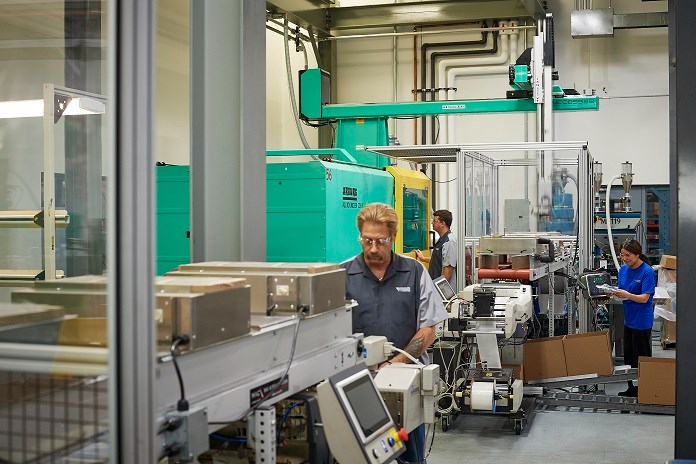
Creating the right manufacturing environment is critical to a tool transfer's success, as it meets the program's immediate needs and accommodates future growth.
A Customized Work Cell
Creating the right manufacturing environment is an equally critical investment in the success of a tool transfer program. For this program, MMD made a significant investment to build a dedicated customer work cell in our Rogers, Minnesota, facility, which guarantees ongoing performance while facilitating fluctuating volumes.
The fully scalable manufacturing environment incorporated two 250-to-300-ton injection molding machines equipped with robotics and end-of-arm tooling and the automated packaging system. Shortly after the program's launch, MMD proactively invested in a third press in anticipation of higher volume.
This investment in additional injection molding capacity proved an important one. When one of the customer's other suppliers ran into a problem, the work was quickly transferred to MMD, and our customer didn't miss any valuable production time.
The work cell was designed to run the machines 24/7, minimizing mold changeovers, press downtime and streamlining operations. This approach limited operator involvement to just one individual to every three machines, significantly reducing labor costs.
Overall, the ability to optimize programs is an essential capability of a strong contract manufacturing partner and a fundamental step in MMD's tool transfer program. Holistically evaluating the program's needs will enable you to design and build a customized work cell that meets the tool transfer program's immediate needs while accommodating future growth and driving longer-term cost reductions.
Combining a wide range of in-house competencies with the discipline to drive the greatest value, the MMD team quickly and efficiently executed the tool transfer program. The first year saw successful production of more than five million high-quality parts while maintaining an average scrap rate of 0.8%. The program has grown to be one of MMD's largest today.
Team Commitment and Focused Approach Yield Success
We credit the program's success to our commitment to high volume, low-mix, highly automated manufacturing programs where we know we can produce exceptional value for our customers. This focus is coupled with our three-fold approach to any tool transfer program's success: holistic tooling analysis, upfront engineering and creating the right manufacturing environment.
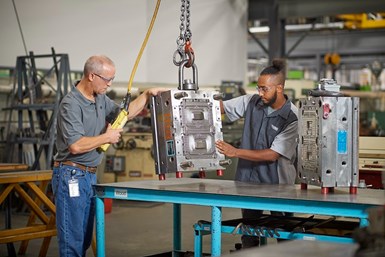
MMD's talented, cross-functional team contributed to the success of the tool transfer by identifying and integrating tooling changes, addressing material issues and building the right manufacturing environment.
Perhaps most important in driving our success was the role and commitment of a talented, cross-functional team. Recognizing the criticality of speed and agility, this team identified and integrated tooling changes, addressed material issues and designed and built a manufacturing environment that put the tools into production at MMD without major interruptions in supply.
It was our engineering and teamwork that won us this program and was behind our early success. But it is our bigger commitment to being an integral part of our customer's day-to-day operations and continuously driving greater value, fueling this growing partnership.
Related Content
Predictive Manufacturing Moves Mold Builder into Advanced Medical Component Manufacturing
From a hot rod hobby, medical molds and shop performance to technology extremes, key relationships and a growth strategy, it’s obvious details matter at Eden Tool.
Read MoreHow to Improve Your Current Efficiency Rate
An alternative approach to taking on more EDM-intensive work when technology and personnel investment is not an option.
Read MoreTackling a Mold Designer Shortage
Survey findings reveal a shortage of skilled mold designers and engineers in the moldmaking community, calling for intervention through educational programs and exploration of training alternatives while seeking input from those who have addressed the issue successfully.
Read MoreEditorial Guidelines: Editorial Advisory Board
The Editorial Advisory Board of MoldMaking Technology is made up of authorities with expertise within their respective business, industry, technology and profession. Their role is to advise on timely issues, trends, advances in the field, offer editorial thought and direction, review and comment on specific articles and generally act as a sounding board and a conscience for the publication.
Read MoreRead Next
Going Beyond Moldmaking and Molding
With roots that are in moldmaking, Metro Mold & Design (MMD) is a contract manufacturing partner who focuses on helping its customers design and execute programs that support key business goals.
Read MoreHow to Use Continuing Education to Remain Competitive in Moldmaking
Continued training helps moldmakers make tooling decisions and properly use the latest cutting tool to efficiently machine high-quality molds.
Read MoreReasons to Use Fiber Lasers for Mold Cleaning
Fiber lasers offer a simplicity, speed, control and portability, minimizing mold cleaning risks.
Read More

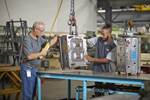





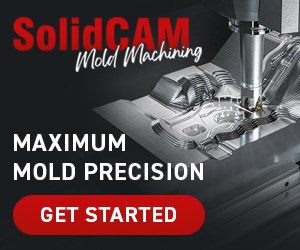

_300x250 3.png;maxWidth=300;quality=90)

.png;maxWidth=300;quality=90)


